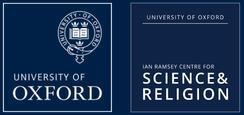Alister McGrath
Research Interests
- historical and conceptual issues relating to science and religion
- natural theology as a legitimate field of theological reflection, and as a framework for furthering the dialogue between science, religion, and literature
- critical realism in science and theology
- the theological utility of scientific philosophies of explanation
- theological models of engagement with the natural sciences, especially those of T. F. Torrance and Emil Brunner
- the application of biological models of evolution to cultural contexts, especially the development of Christian doctrine
- C. S. Lewis on science and religion, especially his critiques of naturalism and scientism
- the use of science in the “New Atheism”
- “two cultures” issues, especially defending the value of humanities in a scientific culture
Publications
Books
Inventing the Universe: Why We Can’t Stop Talking About Science, Faith and God (London: Hodder & Stoughton, 2015). Published in North America as: The Big Question: Why We Can’t Stop Talking About Science, Faith, and God (New York: St. Martins Press, 2015).
Re-Imagining Nature: The Promise of Christian Natural Theology (Oxford: Wiley-Blackwell, 2016).
Enriching Our Vision of Reality: Theology and the Natural Sciences in Dialogue (London: SPCK, 2016).
The Great Mystery: Science, God and the Human Quest for Meaning (London: Hodder & Stoughton, 2017).
The Territories of Human Reason: Science and Theology in an Age of Multiple Rationalities. (Oxford: Oxford University Press, 2019).
A Theory of Everything (That Matters). A Short Guide to Einstein, Relativity and the Future of Faith. Carol Spring, IL: Tyndale, forthcoming October 2019.
A Fine-Tuned Universe? The Quest for God in Science and Theology. Louisville, KY: Westminster/John Knox Press, 2009). The 2009 Gifford Lectures, University of Aberdeen.
Darwinism and the Divine: Evolutionary Thought and Natural Theology (Oxford: Wiley-Blackwell, 2011). The 2009 Hulsean Lectures at the University of Cambridge.
The Intellectual World of C. S. Lewis. (Oxford: Wiley-Blackwell, 2013).
Emil Brunner: A Reappraisal. (Oxford: Wiley-Blackwell, 2014).
Articles
“The Natural Sciences and Apologetics”, in Andrew Davison (ed.), Imaginative Apologetics: Theology, Philosophy and the Catholic Tradition (London: SCM Press, 2011), 142-57.
“Biology in a Christian University,” in Oliver D. Crisp, Gavin D’Costa, Mervyn Davies, and Peter Hampson (eds), Christianity and the Disciplines: The Transformation of the University (London: T&T Clark, 2012), 56-70.
“An Enhanced Vision of Rationality: C. S. Lewis on the Reasonableness of Christian Faith.” Theology 116 No. 6 (2013): 410-17.
“Evidence, Theory, and Interpretation: The “New Atheism” and the Philosophy of Science.” Midwest Studies in Philosophy 37 (2013): 179-89.
“The Doctrine of Creation: Some Theological Reflections,” in Jonathan Moo and Robin Routledge (eds), “As Long as Earth Endures”: Biblical and Theological Perspectives on Creation and the Environment. (Downers Grove, IL: InterVarsity Press, 2014), 32-49.
“Five Questions”, in Gregg D. Caruso (ed.), Science and Religion: Five Questions (Copenhagen: Automatic Press, 2014), 129-35.
“Conflict or Mutual Enrichment? Why Science and Theology need to talk to Each Other.” Science and Christian Belief 27, no. 1 (2015): 3-16.
“Menneske og natur. Emil Brunners skabelsesteologiske engagement”. In Christine Svinth-Vaerge Pöder (ed.), Mellem Tiderne: Fem dialektiske Teologer. Frederiksberg: Forlaget Anis, 2015, 141-70.
“Hesitations about Special Divine Action: Reflections on Some Scientific, Cultural and Theological Concerns.” European Journal for Philosophy of Religion 7, no. 4 (2015): 3-22.
“Chance and Providence in the Thought of William Paley”, in Karl W. Giberson (ed.), Abraham’s Dice: Chance and Providence in the Monotheistic Traditions. New York: Oxford University Press, 2016, 240-59.
“Multiple Perspectives, Levels, and Narratives: Three Models for Correlating Science and Religion,” in Louise Hickman and Neil Spurway (eds), Forty Years of Science and Religion. Newcastle: Cambridge Scholars, 2016, 10-29.
“Wissenschaft, Glaube und der Sinn hinter den Dingen,” in Barbara Drossel (ed.), Naturwissenschaftler reden von Gott. Giessen: Brunnen Verlag, 2016, 9-27.
“Science and Faith: Exploring an Intellectual Frontier.” Dialogue Australia 36 (2016): 8-10.
“Martin Luther in Dialectical Theology,” in Derek Nelson and Paul Hinlicky (eds), Oxford Encyclopaedia of Martin Luther. Oxford: Oxford University Press, 2017, 000-00.
“Emil Brunner: A Theologian for the Academy and Church Today.” Theologische Zeitschrift 73, no. 2 (2017): 176-94.
“Natürliche Theologie: Ein Plädoyer für eine neue Definition und Bedeutungserweiterung.” Neue Zeitschrift für Systematische Theologie und Religionsphilosophie 59, no. 3 (2017), 297-310.
“A Proposal for an Inclusive Scientific Theory.” Scripta Theologica 49, no. 3 (2017): 665-83.
“Narratives of Significance: Reflections on the Engagement of Anthropology and Christian Theology.” In J. Derrick Lemons, (ed.), Theologically Engaged Anthropology: Social Anthropology and Theology in Conversation. New York: Oxford University Press, 2018, 123-39.
“Teologie a doba nejistoty.” In Vykročit z Uzavřenosti, edited by Martin Kočí, 32-40. Prague: Lidové noviny, 2018.
“Christianity.” In Massimo Pigliucci, Skye Cleary, and Daniel A. Kaufman, eds., Philosophies of Life. New York: Vintage, to be published late in 2019.
“Erzähltes Evangelium – Erzählende Kirche? Zur Aufgabe und zum Wesen narrativer Apologetik.’ Theologische Beiträge 50, no.2 (2019): 7-19.
“Propuesta de una teoría inclusiva.” In Miguel Brugaloras, Isabel M. León-Sanz, and Román Sol, eds, Teología y Universidad. Pamplona: Ediciones Universidad de Navarra, 2019, 107-22.
“Loving Science, Discovering God: An Autobiographical Reflection on Science and Theology.” Theology & Science, forthcoming.



